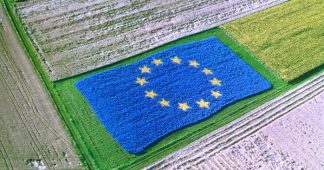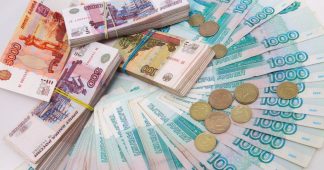By Aidana Yergaliyeva
in International
29 October 2019
The Eurasian Economic Union (EAEU) and Serbia signed a free trade agreement (FTA) on the sidelines of the Oct. 25 meeting of the Eurasian Intergovernmental Council.
The agreement harmonised the existing bilateral FTAs of Serbia with Kazakhstan, Russia and Belarus. It also created a similar regime with Armenia and Kyrgyzstan, which had no preferences in the Serbian market.
“The agreements reached, firstly, open up a fundamentally new market for goods of Armenia and Kyrgyzstan with immediate duty-free access to the vast majority of export-profile goods. Secondly, (the agreement) created new export opportunities for manufacturers of Belarus, Kazakhstan and Russia,” explained the Eurasian Economic Commission (EEC) Trade Minister Veronika Nikishina, reported EEC press service.
According to the Russian government press service, the FTA entails economic benefits for both parties in the near and medium terms. In the near term, the parties will have instant savings of customs payments from existing exports. In the longer term, it is about the “realisation of export opportunities,” said Nikishina.
“Each country of the union will benefit from new opportunities to increase export supplies to Serbia,” said Nikishina. “For Armenia, such potential is in increasing the export of goods of traditional export interest – hard liquor and cigarettes, food products and agriculture. For Kyrgyzstan – in the supply of vegetable and processed agricultural products, for example, beans, nuts and honey. For Belarus, we see a prospect in the growth of exports of vodka, fruit and bitter tinctures, as well as balms and liquors. Kazakh companies have the opportunity to increase sales of processed cheeses and strong alcoholic beverages to Serbia, while Russian companies can increase the wide range of goods from stop valves to sanitary faucets for the home.”
Serbian goods will also be able to enter the EAEU market of 183 million people on lower import duties, among other favourable trade terms.
In addition to tariff obligations, the agreement ensures the availability of legal novelties that guarantee stability, predictability and transparency of trade operations. The parties enhanced the agreement’s regulatory part with the latest legal innovations, including the application of protective measures, dispute resolution and rules of goods’ origin.
“During the negotiations, it was possible to significantly update the regulatory part of the agreement compared to the existing bilateral agreements with Serbia in Belarus, Kazakhstan and Russia, ensuring a reasonable consideration of current trends and practices,” Nikishina said.
The new legal updates are important because Serbia is not a member of the World Trade Organisation.
According to the EEC press service, the agreements with Serbian partners “fix a set of obligations to comply with international standards for the application of licensing procedures; prohibitions and quantitative restrictions; technical regulation and sanitary and phytosanitary measures; fees related to the passage of procedures ‘at the border;’ application of anti-dumping, countervailing and special protective measures, protection of intellectual property rights.”
Among the signees to the document are EEC Chair Tigran Sarkisyan, the prime ministers of the EAEU countries, as well as Serbian Prime Minister Ana Brnabić.
Published at https://astanatimes.com/2019/10/eurasian-economic-union-serbia-sign-free-trade-agreement/











